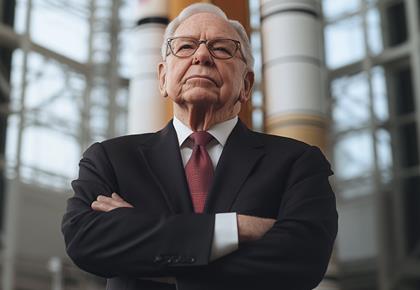Summary
- Setbacks are not failures, but chances to learn and refine your approach.
- A resilient culture that embraces trial and error can drive breakthrough innovation.
- Community support accelerates learning from both successes and setbacks.
For entrepreneurs in the startup ecosystem, embracing failure could be the key to unlocking greater innovation and resilience.
Table of Contents
Embracing failure could be the key to unlocking greater innovation and resilience. Table of Contents
Reframing Failure as a Learning Tool
Starting a business is all about trying new things and sometimes hitting roadblocks. Each time something doesn’t go as planned, it’s an opportunity to learn something valuable.These little stumbles give business owners key insights into what their customers want, what’s special about their products, and how to guide their teams better.
By paying attention to these mistakes, entrepreneurs can tweak their strategy and avoid repeating the same errors in the future.
Airbnb
In the beginning, Airbnb had a tough time catching on and many investors turned them down. The founders even resorted to selling cereal boxes to keep their dream alive.
But they didn’t let these tough times stop them. They realized they needed a better grasp of their market. So, they hit the streets of New York, talking directly to the hosts to understand what they needed and used this insight to make their website better.
Their direct involvement and openness to learn from their setbacks played a big role in turning Airbnb into the worldwide success it is now, changing how we travel and experience new places.
Cultivating a Culture of Resilience
Creating a culture in a startup where mistakes are part of the process can make a team stronger and more adaptable. When people aren’t afraid to try new things or mess up, they’re more likely to come up with fresh and inventive ideas.The ability to bounce back and shift gears quickly is often the difference between a business that is winning and one that doesn’t make it.
Dyson
Before Dyson was known in homes around the world, its founder, James Dyson, went through 5,126 prototypes that didn’t work over 15 years.
The company didn’t see these attempts as failures; instead, they viewed them as crucial steps toward innovation. Their determination and ability to keep going eventually led to the creation of the first bagless vacuum cleaner.
Dyson’s story of how accepting failure and sticking with it through tough times can lead to amazing breakthroughs and, eventually, business success. Success Stories Born from Failures
Success Stories Born from Failures
Many successful startups have histories peppered with challenges and missteps. Their path might include products that didn’t catch on, plans that didn’t work out, or even entire business concepts that needed a total overhaul.What truly sets these startups apart is their willingness to learn from these hard times and their perseverance to push forward.
Nintendo
Nintendo has been involved in a variety of business ventures over the years, from running a taxi service to operating love hotels, with many of these businesses not panning out. Yet, it was their readiness to try new things and learn from these ventures that guided them toward the video game industry.
Nintendo kept going and adapting led them to create some of the most beloved video game consoles and characters, making them a dominant force in the gaming world.
Their path from trying out different, often unsuccessful, ventures to becoming a titan in video games shows that sticking through tough times can lead to incredible achievements.
The key difference in successful startups is their ability to learn from their experiences and keep pushing forward.
Encouraging Risk-Taking and Innovation
Startups are all about trying new things and changing how things are normally done. It’s about being bold enough to take risks, knowing that not every attempt will work out, but some might lead to new and exciting discoveries.SpaceX
In its early days, SapceX saw several of its rocket launches fail, with the first three tries of the Falcon 1 rocket not succeeding. For most businesses, this could have been the breaking point, but SpaceX viewed these moments as chances to learn and get better.
Their determination to keep going and to learn from these challenges eventually paid off. SpaceX made history by being the first private company to send a spacecraft to the International Space Station and changed the game in the space industry with rockets that can be used more than once.
Be willing to take risks if you want to make big leaps forward. Startups thrive on stepping into the unknown and shaking up how things are usually done.
Building a Supportive Startup Community
Creating a community where entrepreneurs can freely share their struggles and lessons makes it easier for everyone to learn from both the good times and the tough ones.Places like networking events, mentorship programs, and online forums are great for swapping valuable insights.
Y Combinator
The famous startup accelerator Y Combinator doesn’t just hand out money; it also offers an environment where founders can learn from seasoned mentors and each other.
During their program, participants talk about what’s worked and what hasn’t, helping new startups sidestep common issues and speed up their development.
This approach of learning together and supporting each other has helped launch major companies like Dropbox and Airbnb.
- Setbacks are not failures, but chances to learn and refine your approach.
- A resilient culture that embraces trial and error can drive breakthrough innovation.
- Community support accelerates learning from both successes and setbacks.
Leave a comment
Leave a comment, an idea, a related blog post on X (Twitter)X (Twitter)

Early revenue is a liar. It tricks you into overspending, overhiring, and overestimating your success.
Learn why startups crumble in Year 2 — and how to stay alive.

What if the secret to scaling your startup isn’t about raising more funding, but unlocking the hidden goldmine already in your business? Uncover the hidden revenue streams hiding in plain sight.

Wonder how Trump’s takeover talk might unravel the Canal’s lucrative income stream? Brace yourself for potential ripples hitting everything from fuel prices to supermarket shelves

Steal like an entrepreneur (ethically)! Why reinvent the wheel when you can improve it? This approach saves you time, money, and countless headaches while keeping you ahead in the game.

Competing against businesses with larger budgets can feel like a David-and-Goliath battle. But the key to success isn’t about matching their spending — it’s about outthinking them.

Discover HEICO: The hidden aerospace jewel in Buffett's multi-billion-dollar portfolio!

